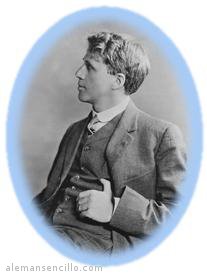The auxiliary verb "haben" in German
"Haben" means "to have" and it is the most important auxiliary verb. Its conjugation is irregular:

Meaning of "haben"
"haben" means:
1.-to have
Er hat Hunger
He’s hungry (has hunger)
2.- Auxiliary verb without meaning
Haben + Akkusativ
When constructing a sentence with "haben", the object that one has must be declined in the accusative:
Ich habe einen Namen
I have a name
Auxiliary Verb
The verb "haben" is one of the 3 auxiliary verbs in German together with the verbs sein and werden. The verb "haben" functions as an auxiliary verb for most verbs in the following tenses:
- Futur II
Er wird es bald geschafft haben
He’ll have finished soon - Perfekt
Er hat gestern Fußball gespielt
He played soccer yesterday - Plusquamperfekt
Ich hatte den ganzen Tag gearbeitet. Danach habe ich eingekauft.
I had worked the whole day. Afterwards, I went shopping
Visit this link if you want to know when to use haben as an auxiliary verb.
The Conjugation of the verb "haben"
"Haben" is irregular which is why its conjugation must be learned.
| Verb | 3rd Person | Präteritum | Partizip II | Meaning |
|---|---|---|---|---|
| haben | (hat) | hatte | gehabt | to have |
Present simple (Präsens Indikativ)
| Conjugation | Meaning |
|---|---|
| ich habe | I have |
| du hast | you have |
| er hat | he has |
| wir haben | we have |
| ihr habt | you have |
| sie haben | they have |
Examples:
Ich habe einen Hund
I have a dog
Hast du Angst?
Are you afraid (do you have fear)?
Er hat Geld
He has money
Wir haben Glück
We have luck
Haben Sie Zeit?
Do you have time?
The Subjunctive I (Konjunktiv I)
| Conjugation |
|---|
| ich habe |
| du habest |
| er habe |
| wir haben |
| ihr habet |
| sie haben |
Er sagte, er habe ein Auto
He said he had a car
More information about Konjunktiv I
Präteritum
| Conjugation | Meaning |
|---|---|
| ich hatte | I had |
| du hattest | you had |
| er hatte | he had |
| wir hatten | we had |
| ihr hattet | you had |
| sie hatten | they had |
Du hattest den Schlüssel
You had the key
Wir hatten einen Traum
We had a dream
More information about Präteritum
Konjunktiv II
| Conjugation |
|---|
| ich hätte |
| du hättest |
| er hätte |
| wir hätten |
| ihr hättet |
| sie hätten |
Ich hätte gerne noch ein Bier
I would like to have another beer
More information about Konjunktiv II
Perfect (Perfekt)
| Conjugation | Meaning |
|---|---|
| ich habe gehabt | I have had |
| du hast gehabt | you have had |
| er hat gehabt | he has had |
| wir haben gehabt | we have had |
| ihr habt gehabt | you have had |
| sie haben gehabt | they have had |
Er hat eine Krankheit gehabt
He’s been sick
More information about Perfekt
Imperative (Imperativ)
| Imperativ | Meaning | |
|---|---|---|
| 2nd Person Singular | hab | have |
| 2nd Person Plural | habt | have |
Hab viel Glück!!
Good luck!!
More information about Imperative
Participle (Partizip)
| gehabt |
Auxiliary verb (Hilfsverb)
| haben |
Construction "Haben" + "zu"
The construction "haben" + "zu" has the meaning "to have to" and behaves like a modal verb.
Ich habe viel zu tun
I have a lot to do
Verbs with the stem "haben"
There are several verbs with the stem "haben". Here are the main ones:
| Verb | Meaning |
|---|---|
| anhaben | to have on to wear (separable verb) |
| dabeihaben | to have something with you (separable verb) |
| vorhaben | to plan (separable verb) |
Next Lessons:
home > : Pronouns | Prepositions | Nouns | Plurals | Diminutives | Conjugation | Passive | Irregular verbs | Modal Verbs | Separable verbs | Reflexive verbs | Reciprocal verbs | Impersonal verbs | Conjunctions | Articles | Adverbs | Konjunktionaladverbien | Adjective | Comparative and superlative | Word order in German | Negation and Affirmation | Interrogation | Indirect question | Subordinates | relative clauses | Conditional clauses | Comma
Suggestions to Help You | Difficulties with learning German | Greetings